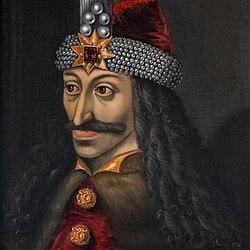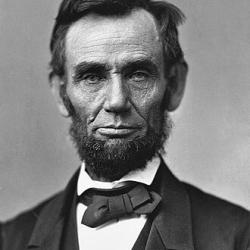On the occasion of Memorial Day, here is a list of quotes by our pontiffs said during wartime or about the horrors’ of war in general.
Civil War
It is particularly agreeable to us to see that you, illustrious and honorable President, and your people, are animated with the same desires of peace and tranquility which we have in your letters inculcated upon our venerable brothers. May it please God at the same time to make the other peoples of America and their rulers, reflecting seriously how terrible is civil war, and what calamities it engenders, listen to the inspirations of a calmer spirit, and adopt resolutely the part of peace. As for us, we shall not cease to offer up the fervent prayers to God Almighty that He may pour out upon all the peoples of America the spirit of peace and charity, and that He will stop the great evils which afflict them. We, at the same time, beseech the God of mercy and pity to shed abroad upon you the light of His grace, and attach you to us by perfect friendship.
Pius IX. THE POPE’S LETTER TO JEFF. DAVIS. Given at Rome, at St. Peter’s, the 3d day of December, 1863, of our Pontificate 18.
World War 1
In the holy name of God, in the name of our heavenly Father and Lord, by the Blessed Blood of Jesus, price of man’s redemption, We conjure You, whom Divine Providence has placed over the Nations at war, to put an end at last to this horrible slaughter, which for a whole year has dishonoured Europe. It is the blood of brothers that is being poured out on land and sea. The most beautiful regions of Europe, this garden of the world, are sown with corpses and with ruin: there, where but a short time ago flourished the industry of manufactures and the fruitful labour of the fields, now thunders fearfully the cannon, and in its destructive fury it spares neither village nor city, but spreads everywhere havoc and death. You bear before God and man the tremendous responsibility of peace and war ; give ear to Our prayer, to the fatherly voice of the Vicar of the Eternal and Supreme Judge, to Whom you must render an account as well of your public undertakings, as of your own individual deeds.
BENEDICT XV APOSTOLIC EXHORTATION TO THE PEOPLES NOW AT WAR AND TO THEIR RULERS Given at Rome, from the Vatican, 28 July 1915.
World War 2
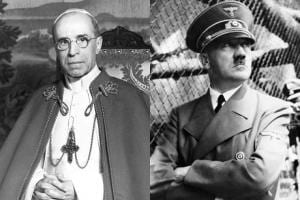
We also desire that during the month of May, innocent children especially beg from the Mother of divine Wisdom expressly this heavenly light for those who will adjudicate the universal cause. Let them consider seriously and ponder before God whatever has transgressed the limits of justice and equity. If these matters are not resolved, it would be detrimental both for the victors and the vanquished, since then their solutions could themselves bear the seeds of future wars.
We desire moreover that those who heed Our exhortation, also pray for those who are fugitives banished from their homeland and longing to once again see their own homes; also for those in captivity who wait for their liberation after the war; and finally those who lie in numberless hospitals. To these miserable ones and to all others afflicted by this monstrous conflict, may the most merciful Mother of God grant heavenly solace and obtain for them the virtue of Christian patience by which illnesses of the most severe kind become bearable and lead to eternal beatitude.
POPE PIUS XII, COMMUNIUM INTERPRETES DOLORUM ,ENCYCLICAL
Given at Rome, at St. Peter’s, Sunday, the 15 of April, sacred to the Good Shepherd Jesus Christ, 1945, in the seventh year of Our pontificate.
Cuban Missile Crisis
Kennedy, the first (and still so far, the only) Catholic president, then sent a message to Pope John XXIII. After reading the president’s note, the pope drafted a message, copies of which were delivered to both the American and Soviet embassies. The following day, John read his message on Vatican Radio. It said:
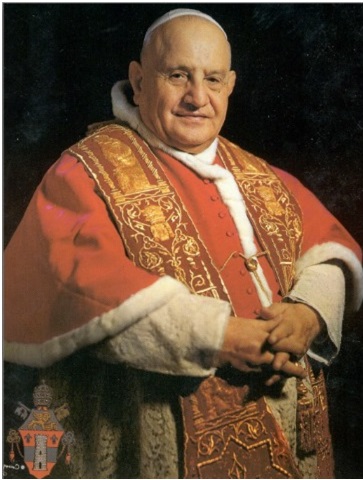
We beg all governments not to remain deaf to this cry of humanity. That they do all that is in their power to save peace. They will thus spare the world from the horrors of a war whose terrifying consequences no one can predict. That they continue discussions, as this loyal and open behaviour has great value as a witness of everyone’s conscience and before history. Promoting, favoring, accepting conversations, at all levels and in any time, is a rule of wisdom and prudence which attracts the blessings of heaven and earth.
The next day, the Pope’s message appeared in newspapers all around the world, including Pravda, the official newspaper of the Soviet Communist party. The headline in that paper said: “We beg all governments not to remain deaf to this cry of humanity.”
Ronald J. Rychlak, A War Prevented: Pope John XXIII and the Cuban Missile (November 11, 2011) Crisis Magazine
During Vietnam War

Here our message reaches its culmination and we will speak first of all negatively. These are the words you are looking for us to say and the words we cannot utter without feeling aware of their seriousness and solemnity: never again one against the other, never, never again!
Was not this the very end for which the United Nations came into existence: to be against war and for peace? Listen to the clear words of a great man who is no longer with us, John Kennedy, who proclaimed four years ago: “Mankind must put an end to war, or war will put an end to mankind.” There is no need for a long talk to proclaim the main purpose of your Institution. It is enough to recall that the blood of millions, countless unheard-of sufferings, useless massacres and frightening ruins have sanctioned the agreement that unites you with an oath that ought to change the future history of the world: never again war, never again war! It is peace, peace, that has to guide the destiny of the nations of all mankind!
POPE PAUL VI , ADDRESS OF THE HOLY FATHER PAUL VI TO THE UNITED NATIONS ORGANIZATION Monday, 4 October 1965
Gulf War

It is especially important in the aftermath of the Gulf War that those belonging to the three religions which have their historical roots in the Middle East should strive to overcome misunderstandings through genuine dialogue in an atmosphere of religious freedom based on mutual respect. I am fully convinced that this is essential for a just and lasting peace in the whole region, which for so long has been troubled by violence and discord. Only through interreligious dialogue can the powerful role of religious faith be placed at the service of peace through the elimination of prejudice and intolerance, to the glory of God in whose oneness we all believe.
JOHN PAUL II, ADDRESS OF HIS HOLINESS JOHN PAUL II TO THE STAFF MEMBERS OF THE DIALOGUE SUB-UNIT OF THE WORLD COUNCIL OF CHURCHES Friday, 21 June 1991
Further Papal Sayings about War
“What can be said, too, about those governments which count on nuclear arms as a means of ensuring the security of their countries? Along with countless persons of good will, one can state that this point of view is not only baneful but also completely fallacious. In a nuclear war there would be no victors, only victims. The truth of peace requires that all —whether those governments which openly or secretly possess nuclear arms, or those planning to acquire them— agree to change their course by clear and firm decisions, and strive for a progressive and concerted nuclear disarmament. The resources which would be saved could then be employed in projects of development capable of benefiting all their people, especially the poor.” – Pope Benedict XVI, 2009 World Day of Peace Message, no. 13
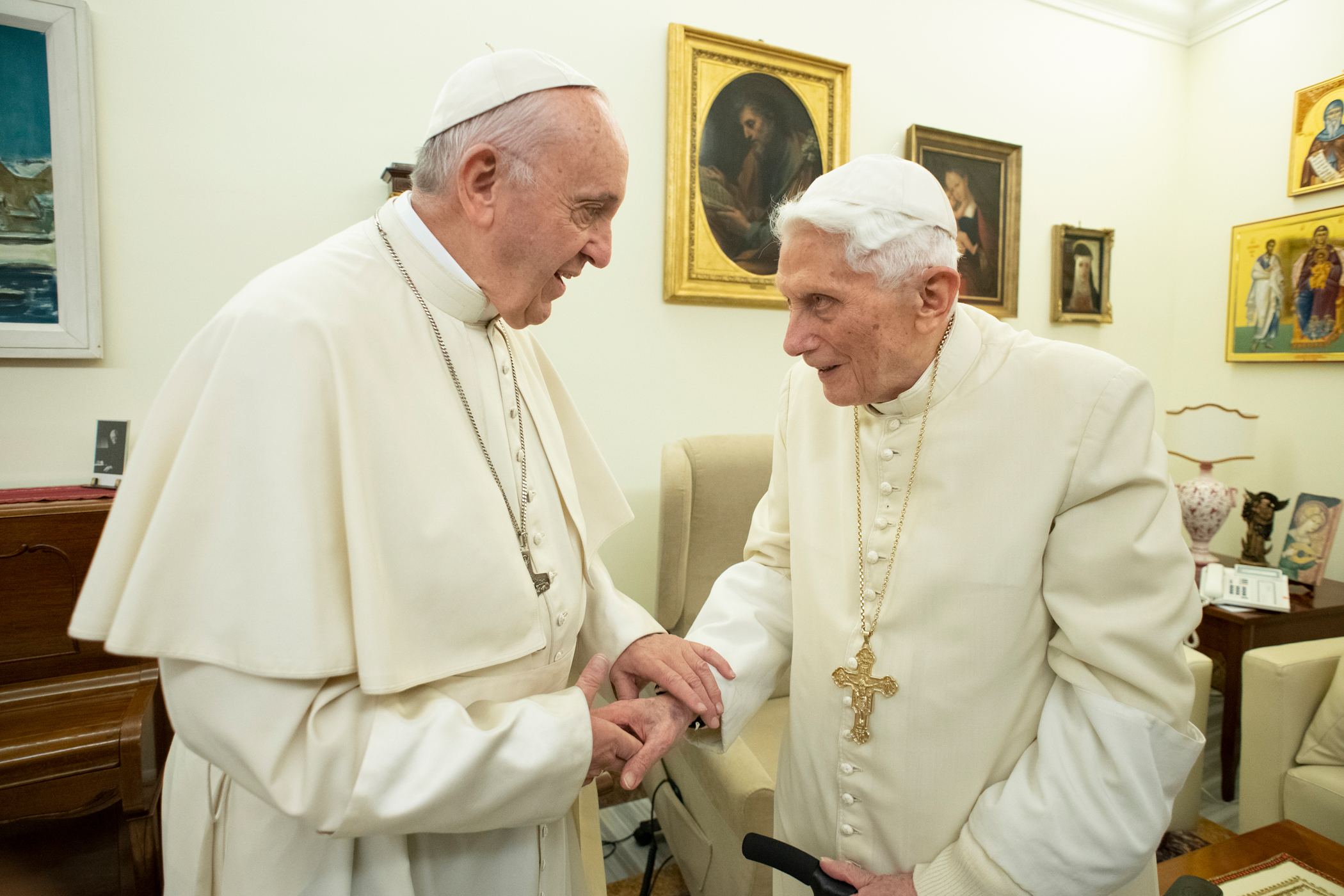
“However, as Christians we remain profoundly convinced that the final aim, worthy of humanity and of the human community, is the abolition of war. Therefore, we must always make efforts to build bridges that unite rather than walls that separate; we must always help to look for a glimmer of hope for mediation and reconciliation. … In this period, in which we are living a piecemeal third world war, you are called upon to nurture in soldiers and their families the spiritual and ethical dimension so that it may help them face the difficulties and often devastating questions inherent in the special service they carry out for their homeland and for humanity.”
Pope Francis — Audience with international humanitarian law for military chaplains, Oct. 26, 2015
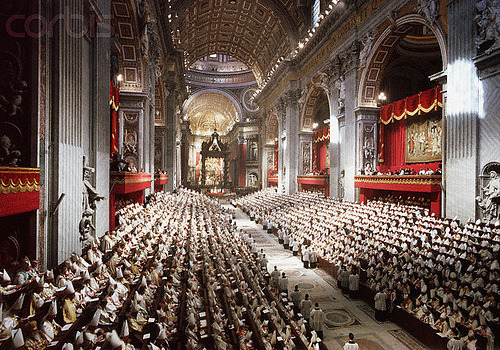
“The horror and perversity of war is immensely magnified by the increase in the number of scientific weapons. For acts of war involving these weapons can inflict massive and indiscriminate destruction, thus going far beyond the bounds of legitimate defense. … Any act of war aimed indiscriminately at the destruction of entire cities or extensive areas along with their population is a crime against God and man himself. It merits unequivocal and unhesitating condemnation. … Scientific weapons, to be sure, are not amassed solely for use in war. Since the defensive strength of any nation is considered to be dependent upon its capacity for immediate retaliation, this accumulation of arms, which increases each year, likewise serves, in a way heretofore unknown, as a deterrent to possible enemy attack. Many regard this as the most effective way by which peace of a sort can be maintained between nations at the present time.” – Second Vatican Council, The Church in the Modern World, no. 80, 81







